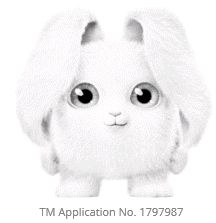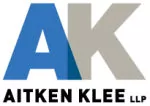- with readers working within the Insurance industries

On January 9, 2016, the Quebec Superior Court dismissed Irving Consumer Product's demand for a provisional injunction seeking to enjoin Cascades from relaunching its toilet paper brand using FLUFF, a cartoon-style 3D depiction of a white, fluffy rabbit. Irving, which produces the ROYALE brand of bathroom tissue associated with a pair of white, blue-eyed Persian kittens, sought a provisional injunction alleging that Cascade's use of FLUFF on their packaging would cause confusion with the Irving's marks employing the ROYALE kittens.
Cascades had filed several trademark applications for FLUFF in August 2016. Upon learning of Cascade's trademark filings, Irving's lawyers sent a cease an desist letter on November 28, 2016. On December 8, 2016, Cascades lawyers wrote back denying trademark infringement. Irving brought its injunction application nearly a month later, on January 5, 2017.
Confusion
The Court discounted the evidence of Irving's marketing expert, Professor Michael Pearce, holding his approach to confusion was an oversimplification and inconsistent with the "first impression in the mind of a casual consumer somewhat in a hurry" as set out by the Supreme Court of Canada in Veuve Cliquot. Further, Professor Pearce's report contained two significant errors, including mistakenly asserting that FLUFF's eyes on Cascade's proposed packaging were also blue. The Court, after considering the elements set out in subection 6(5), concluded that at this point it could not conclude that FLUFF would not cause confusion with the ROYALE trademarks, holding:
[59] In the Court's view it is far from clear that a consumer of average intelligence will confuse two kittens with one rabbit even considering the test set out at paragraph 62 in Masterpiece and that reads as follows:
Resemblance is defined as the quality of being either like or similar; see Shorter Oxford English Dictionary on Historical Principles (5th ed. 2002), at p. 2544, under the definition of "resemblance". The term "degree of resemblance" in s. 6 (5}(e) of the Act implies that likelihood of confusion does not arise solely from identical trade-marks ...
[60] Generally an average consumer should be able to distinguish between two white furry animals with blue eyes that are clearly kittens and one other white furry animal like creature with oversized green eyes and floppy ears.
Nor did Cascades' proposed use of FLUFF constitute passing off, since it was common to use white furry animals in association with bathroom tissue:
[41] ...Many sellers of bathroom tissue use cuddly white animals and the colour blue to sell bathroom tissue. Charmin uses a cartoon bear and the colour blue for its softer brand. Cashmere uses the colour blue, as does Cottonelle.
[42] The selection Metro brand uses rabbits, white, soft and fluffy. Giant Tiger uses a rabbit. So does Sobey's. Finally the Uniprix Option + brand uses two rabbits with floppy ears and at least one of which is staring directly at the consumer.
...
[67] At the risk of repetition, the use of white furry animals is not unique to the packaging for lrving's products. It is common practice throughout the bathroom tissue industry, particularly the use of rabbits. What is perhaps distinct is Royale's use of two kittens, but that distinctiveness in the Court's view is not endangered by Cascades use of one stylized bunny.
Provisional Injunction
The Court held that Irving had failed to meet the three conditions for injunctive relief as set out by the Supreme Court of Canada in RJR MacDonald. First, the Court held that Irving had inordinately delated bringing it injunction application, particularly in light of language in its cease and desist letter indicating that it would in commence proceedings without any further notice or delay. This delay tipped the balance of convenience in Cascade's favour:
[83] The additional delay in the Court's view caused by lrving's failure to act sooner has put Cascades in a more difficult position and is a factor to be considered in respect of the balance of convenience which the Court concludes is in Cascades' favour at this juncture. Calling off the launch now when it is so far advanced would no doubt cause Cascades significant harm, perhaps to the benefit of Irving. Its ability to produce products in the old packaging is now clearly hampered; this would have been less the case if Irving had acted in a more timely fashion.
The Court also held that Irving had failed to demonstrate irreparable harm and that any lost Royale sales should be quantifiable.
A copy of the decision may be found here.
The content of this article is intended to provide a general guide to the subject matter. Specialist advice should be sought about your specific circumstances.
[View Source]

